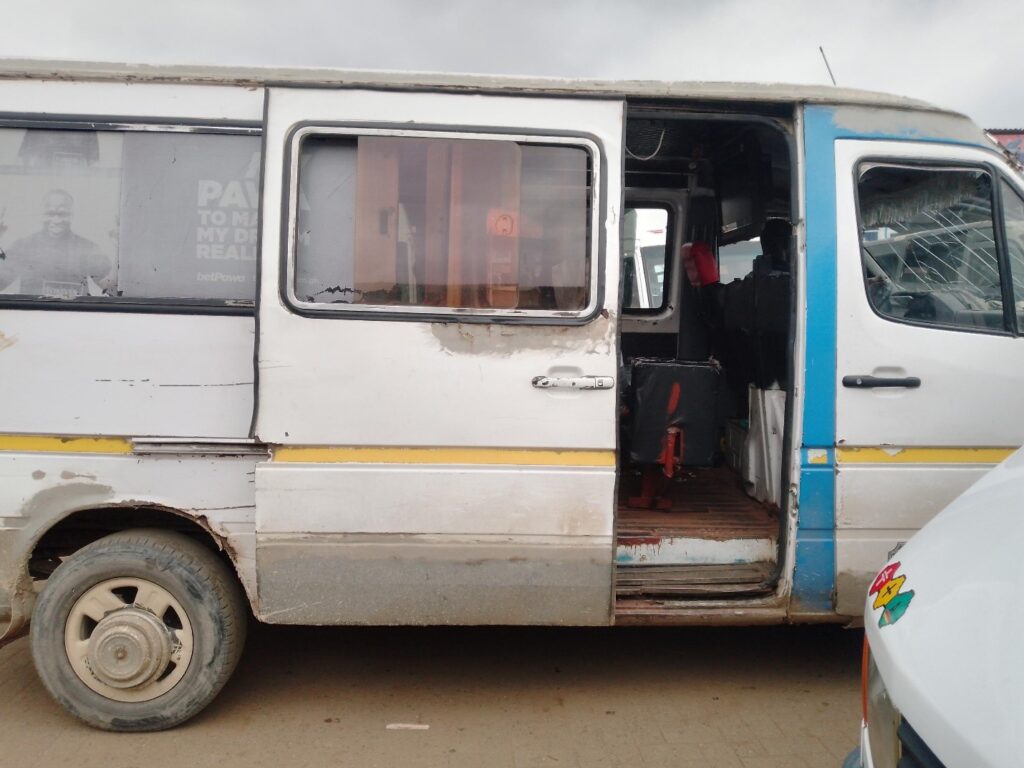Every morning, millions of Ghanaians brace themselves for the same exhausting battle. The struggle to get to work, school, or the market using the country’s broken public transport system. From overcrowded “trotros” with broken seats to dangerously speeding buses, Ghana’s transportation crisis is more than an inconvenience it’s a national embarrassment and a threat to public safety.
While the government promises infrastructure upgrades, the reality on the ground remains chaotic, inefficient, and often life-threatening. This article examines the failures of Ghana’s public transport system and why urgent reforms are needed. Overcrowding is a chronic issue. Minivans, originally designed to accommodate around fifteen passengers, routinely cram in twenty or more. This blatant disregard for safety and comfort is a direct result of the high demand and the limited options available.
The poor maintenance of these vehicles exacerbates the problem. Many “trotros” lack essential safety features like functioning seatbelts and are often plagued by broken doors and windows. Furthermore, the emission of thick, toxic fumes from poorly maintained engines poses a significant health hazard to both passengers and the environment. The “ trotros” system, while essential, is in dire need of reform to ensure safety, efficiency, and respect for passengers.
Ghana’s public transport system, once envisioned as a symbol of progress, now struggles under the weight of its own shortcomings. The promise of accessible, reliable, and safe transportation for all Ghanaians has been repeatedly broken, leaving commuters stranded and frustrated.
Many buses sit idle for months due to poor maintenance, leaving commuters waiting for hours, only for buses to arrive packed or not at all. Alot of Ghanaians board rickety, smoke-belching “trotros” with, Broken seats (exposed springs cutting into passengers). Missing doors (held together with ropes or wires). No seatbelts (making accidents deadlier). Thick exhaust fumes (causing respiratory diseases)
An interview with a commuter, Ms. Agnes, she stated, “Why must we risk our lives just to get to work? The driver keeps saying ‘God is in control’ while the steering wheel is shaking! I pay for this? I might as well walk!”
In Ghana there are laws concerning these bad public transports. Section 66(1) of the Road traffic Act 683 states, “A person shall not drive or permit to be driven on a road a motor vehicle or trailer unless it is in such a mechanical condition as not to endanger the safety of the occupants or other road users.”
Section 66(2) of the law also says that, “A driver who has reason to believe that a vehicle is unroadworthy shall refuse to drive it and shall immediately report the defect to the owner or operator.”
Section 66(3) again emphasis “No employer shall penalize a driver for refusing to operate an unsafe vehicle”.
Many drivers fear losing jobs if they refuse unsafe vehicles. Transport unions often side with owners against complaining drivers. Police rarely enforce this unless after an accident.
Act 683, Section 66: Drivers can refuse to operate unroadworthy vehicles without penalty.
Drivers cannot be forced to drive vehicles with faulty brakes/steering, dangerous fuel leaks, bald tires or broken lights but does it reflect. Legal right to report defective vehicles without retaliation. Owners face fines (up to 250 penalty units GH¢3,000) for pressuring drivers.
Labour Act, 2003 (Act 651) Worker Protections for Commercial Drivers
Many drivers hate using these death traps but have no choice because, owners refuse to repair vehicles (maximizing profits). Unions pressure them to overload and work long hours. Police take bribes instead of enforcing safety laws.
Section 10 (Safe Working Conditions) Employers must provide: Safe equipment (properly maintained vehicles) Protective gear (seatbelts, fire extinguishers)
These laws matters a lot taking into consideration the safety and survival dilemma. Drivers know vehicles are death traps but drive them because: “If I refuse, the owner will give the car to someone else and l won’t be able to feed my family, Brother John a driver at Tema commented.
Why do we have all these laws but enforcement of it fails? The organizations responsible for the law enforcement like Driver vehicle license Authority (DVLA) and Motor transport and traffic directorate (MTTD) have been corrupted. Bribes let dangerous vehicles pass inspections, therefore the inspections are weak. No routine checks on driver working conditions.
What the law says is different from the reality we face. “Inspection? Just Pay GH¢50 and Go!”. Ghana’s laws are strong on paper but fail in practice, DVLA officers take bribes to pass unfit cars. Police collect “tolls” instead of impounding dangerous vehicles. Transport unions block reforms to protect their profits.
If we want our transport situations to improve then we adapt to some of these rules. Anonymous reporting systems for drivers to flag unsafe vehicles. Pay informants 10% of fines for reporting corrupt inspectors. 50% discount on spare parts for commercial drivers.
Mandatory union training on these legal protections. Mobile courts to punish negligent transport owners.
Commuters should also refuse to board vehicles with visible smoke leaks, more than 3 broken seats, no functioning seatbelts
Immediate Actions like OperationScrapDeathTraps. Weekly police raid to impound 1,000 unfit “trotros” in Accra/Kumasi.
“Enough is Enough, We Demand Safe Rides!” Commuters deserve dignity, drivers need protection, and the law must work. If Kenya and Rwanda can fix their transport systems, Ghana has no excuse.
#ScrapTheDeathTraps #FixOurTrotros #SafeTransportNow #GhanaRoadSafety
TIFFANY NYAMEKYE AGGREY
0595996417
University of Media, Arts and Communication – Institute of Journalism (UniMAC-IJ)


